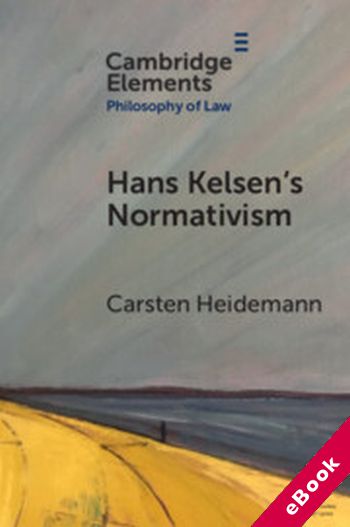
The device(s) you use to access the eBook content must be authorized with an Adobe ID before you download the product otherwise it will fail to register correctly.
For further information see https://www.wildy.com/ebook-formats
Once the order is confirmed an automated e-mail will be sent to you to allow you to download the eBook.
All eBooks are supplied firm sale and cannot be returned. If you believe there is a fault with your eBook then contact us on ebooks@wildy.com and we will help in resolving the issue. This does not affect your statutory rights.
Hans Kelsen's Pure Theory of Law is the most prominent example of legal normativism. This text traces its origins and its genesis. In philosophy, normativism started with Hume's distinction between Is- and Ought-propositions. Kant distinguished practical from theoretical judgments, while resting even the latter on normativity. Following him, Lotze and the Baden neo-Kantians instrumentalized normativism to secure a sphere of knowledge which is not subject to the natural sciences. Even in his first major text, Kelsen claims that law is solely a matter of Ought or normativity. In the second phase of his writings, he places himself into the neo-Kantian tradition, holding legal norms to be Ought-judgments of legal science. In the third phase, he advocates a barely coherent naive normative realism. In the fourth phase, he supplements the realist view with a strict will-theory of norms, coupled with set-pieces from linguistic philosophy; classical normativism is more or less dismantled.